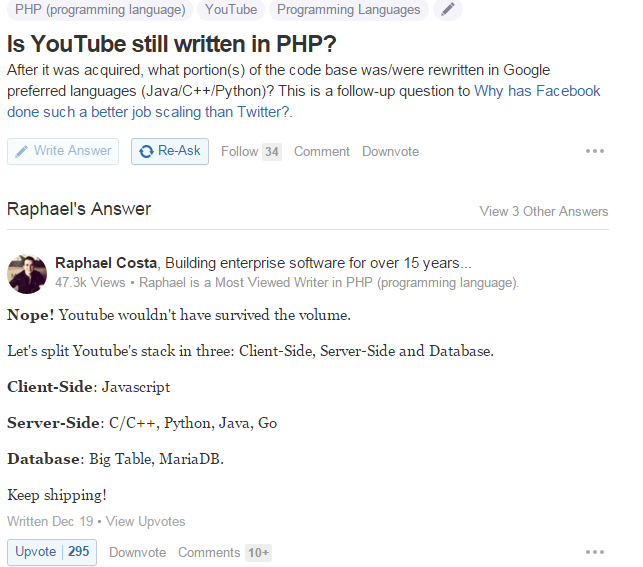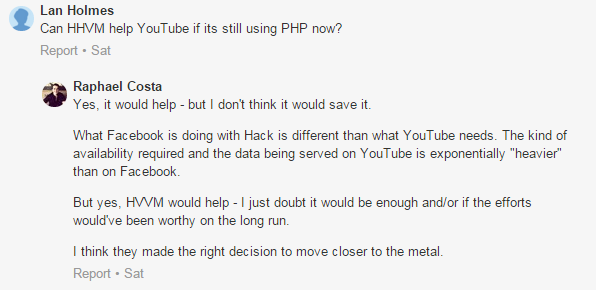In this YouTube video there's a crappy interview with Richard Stallman where he does his typical thing of laying out his philosophy and answering some asinine questions from the hosts. One good question asked though was, more or less, regarding the idea of supporting a family while at the same time giving your software away for free.
Free Software people love telling you that on the one hand you should be able to/you can make money with your software, but on the other they also tend to admit you can't actually make a decent living giving your stuff away for free, and yes I know you can sell your software, but if it comes with source and someone redistributes it to the world, well then you've given it away, so your attempts to charge don't really work.
Yes, there's Red Hat and a few others out there, but since those original big boys which have been heavily propped up by companies which create proprietary software and hardware, there really haven't been any other success stories. All those companies like Cygnus, VA Linux, etc are all gone. The idea of "well we can give it away and charge for support" and "we charge for manuals / physical copies of software" aren't decent and workable business models. They're great ways to go out of business though, unless you've got a big daddy company to back you up, like IBM, which doesn't play be the same rules you claim to.
Here is the part of the interview I'm talking about:
Host: Are you actuality putting the needs of have no non-free software above the needs of feeding my kid?
Stallman: Absolutely. I don't see much difference what your saying and what a thief or swindler would say trying to justify what his doing; the most effective thing an American can do not reduce ecological impact is not have a kid.
In a way that speaks for itself, but the comments too really are interesting because they often both admit the obvious issue of working essentially for free (save a few examples out of tens of thousands of FOSS projects) and at the same time claiming you'll actually be better off and make more money this way.
Not to mention that freedom, apparently, is taking freedom from everyone else; then again this is coming from zealots who think Stallman deserves GNU tacked on to the start of Linux, a requirement which no other software project, platform, or library is morally obligated to make, just Linux.
I think it may be obvious I'm not one of those who says "Richard Stallman deserves praise for all he's done," he gets more than enough praise. I'm not against open source or free software, in fact I've distributed code on this blog using the MIT/X11 license. I am against forcing everyone else to live by your rules and licensing.
If you can make your way through the typical ass kissing Richard Stallman posts, you can find the nuggets I'm talking about.
This was ridiculously stupid. I don't care if your child eats – that responsibility is on you. And I'm not willing to sacrifice my freedom, just so that you can meet your responsibility. Think about it.
It doesn't seem to occur to him that maybe I have the freedom to create closed source software, and he has the freedom to not buy it. It's as if it's imposed upon him. Maybe he should think about that.
As far as the double think goes when it comes to making money. Well, Free software apparently makes it to where developers keep the money or maybe the users, who knows:
…with this model there would no need for publishers at all. All profits would go to developers, the people who deserve the money and did the work. No need to spend on marketing or distribution either, ergo no need for publisher.
Free software is important. Free software takes the power of the CEO or director of a company and distributes it to every single user of the application. Free software is about transparency, and the ability to be less ignorant to malicous code inside software.
However, when reality sets in:
Feeding the kid, lol. As if anyone would have to starve in a western country. Here in central Europe, you certainly don't need work at all for this, there is basic coverage.
Someone's clearly never been poor.
Regardless, the point I'd like to make here is that being a software developer does not mean you are incapable of doing any other sort of work and are a charity case if you can't find a job that meets your standards.
So on the one hand as the developer you'll reap the rewards of all your hard work, but on the other you won't really have any money and "lol fuck you and your kids, get another job, moron," and they apparently don't see the connection here.
There you have it, yes you can make a living and feed your family (as if children are the only dependencies people can have, then again I guess many of these people live with their parents) but really only if you're lucky enough to work at Red Hat or GNOME, or you get a job working some place else.
I definitely see this approach as the best way to increase software investment and development. Everyone knows you do your best work, not when secure in the knowledge you can work all night getting that bug fixed and be proud, … but instead when you gotta get in bed by 8pm because you've got to be up early enough to start up the deep fryers at work; hopefully tonight you'll be able to get on that issue someone reported five months ago.


